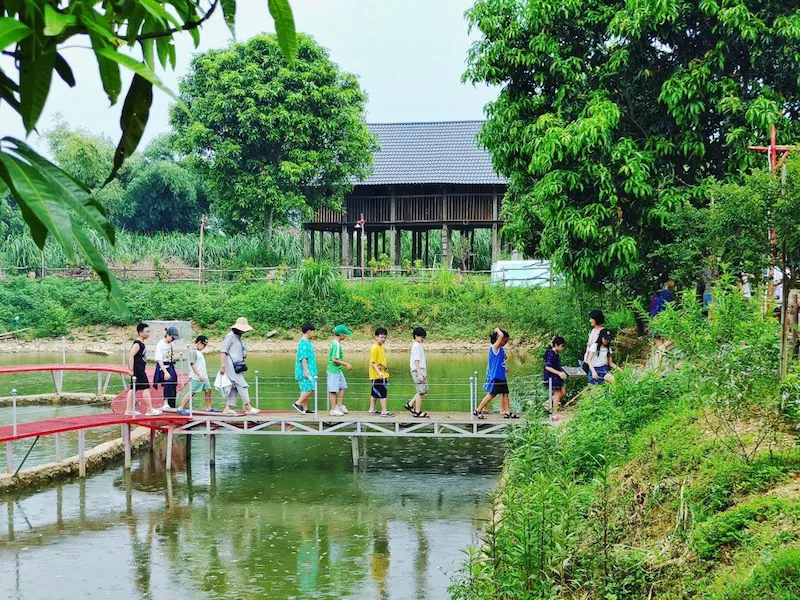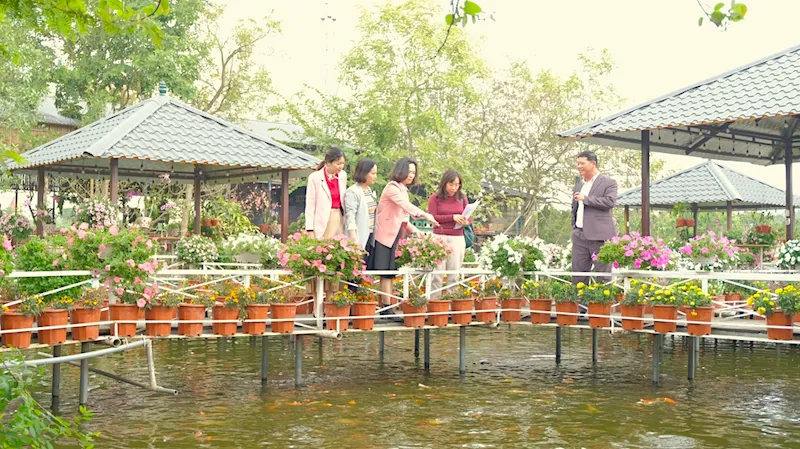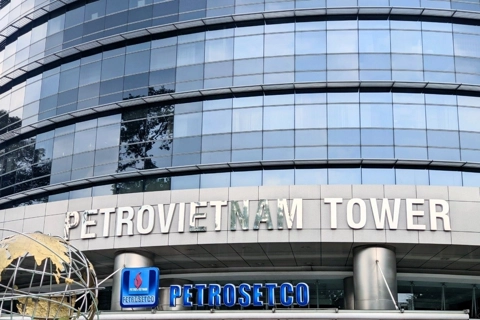Investment and infrastructure: key to revitalizing Hanoi rural tourism
Rural areas are likened to a "gold mine" for Hanoi's tourism industry to extract diverse products and draw tourists, provided policies encourage people and businesses to invest in rural tourism.
The municipal government should create mechanisms and policies to encourage travel agencies to send tourists to rural areas and invest in transport infrastructure and waste collection and treatment.
Nguyen Van Thang, deputy director of the Center for Professional Research and Development under Hanoi Metropolitan University, made the recommendation at a conference to find solutions for developing agritourism in Hanoi this week.
| Ba Vi District is one of the favorite destinations for local visitors. Photo: Hoang Quan |
"However, to achieve this, the tourism industry needs to establish a set of criteria for rural tourism destinations linked to the development of new rural areas, which will serve as guidelines for localities to invest in tourism," he stressed.
Nguyen Duc Thang, Head of the Faculty of Tourism at Dong A University, agreed with this suggestion, adding that the tourism industry needs to work out standards to define the quality of iconic tourism products and services in rural areas and evaluate them for unified management.
"At the same time, it is necessary to attract foreign investment in infrastructure," he said.
Assessing the benefits of agricultural and rural development, Nguyen Tien Dinh, a researcher at the Department of Cooperatives and Rural Development under the Ministry of Agriculture and Rural Development, said rural tourism not only provides livelihoods for farmers, but also contributes to the preservation and promotion of traditional cultural values, ecological landscapes, and supports the development of tourist destinations.
Although it brings economic benefits, the development of this type of tourism is still spontaneously fragmented and mainly capitalizes on existing products without creating unique cultural and value-added services.
Tran Thi Lan from the Institute for Tourism Development Research highlighted the shortcomings in developing this tourism model, noting the absence of cooperation between destinations, resulting in a lack of community involvement.
In addition, infrastructure and supporting facilities are underinvested and of low quality. Many destinations have difficulty working with travel companies to improve and develop products and attract tourists.
The Hong Van Cooperative is one of four agrotourism cooperatives in Hanoi. Photo: Lam Nguyen |
Vu Van Tuyen, CEO of Travelogy Vietnam, believed that the tourism industry needs to identify the target guests and develop appropriate marketing activities for this type of service.
"The main consumers for agritourism and rural tourism are currently domestic tourists, as there is a significant demand from city dwellers for clean food and green spaces, as well as experiencing the traditional lifestyle. This will be an important source of income for agritourism in Hanoi," he said.
According to the municipal Department of Tourism, Hanoi is home to 11 eco-agriculture farms operating under the educational and experiential tourism model. There are also four agricultural cooperatives that specialize in combining education and experiential tourism, including Thanh Xuan Organic Vegetable Cooperative (Soc Son District), Duong Lam Vegetable Cooperative (Son Tay Town), Dong Tien Experiential Cooperative (Ung Hoa District), and Hong Van Cooperative (Thuong Tin District).
Dang Huong Giang, Director of the Hanoi Tourism Department, said that the Hanoi government has set a direction to explore and highlight the unique characteristics of agricultural and rural tourism in the tourism development of the capital and the country.
The city has also encouraged organizations and individuals to continue creating new, unique products based on the strengths of each locality. It has provided them with guidelines on how to do so.
Hanoi has set a target that in 2022-2025, each locality with agricultural and rural tourism potential will have at least one to three community-based tourism services and tourist attractions involving farmers, cooperatives, households, and businesses.
Specifically, the city will focus on building and piloting six agricultural and rural tourism development models towards green, responsible and sustainable tourism in Thuong Tin, Dan Phuong, Thanh Tri, My Duc, Thach That and Son Tay Town districts.
Hanoi also aims to train and upgrade the vocational skills of at least 80% of workers in service and handicraft villages and managers of agricultural and rural tourism enterprises.
To achieve these goals, the city will assess the current situation of agrotourism and rural tourism and support the development of community tourism destinations linked to traditional craft villages.












